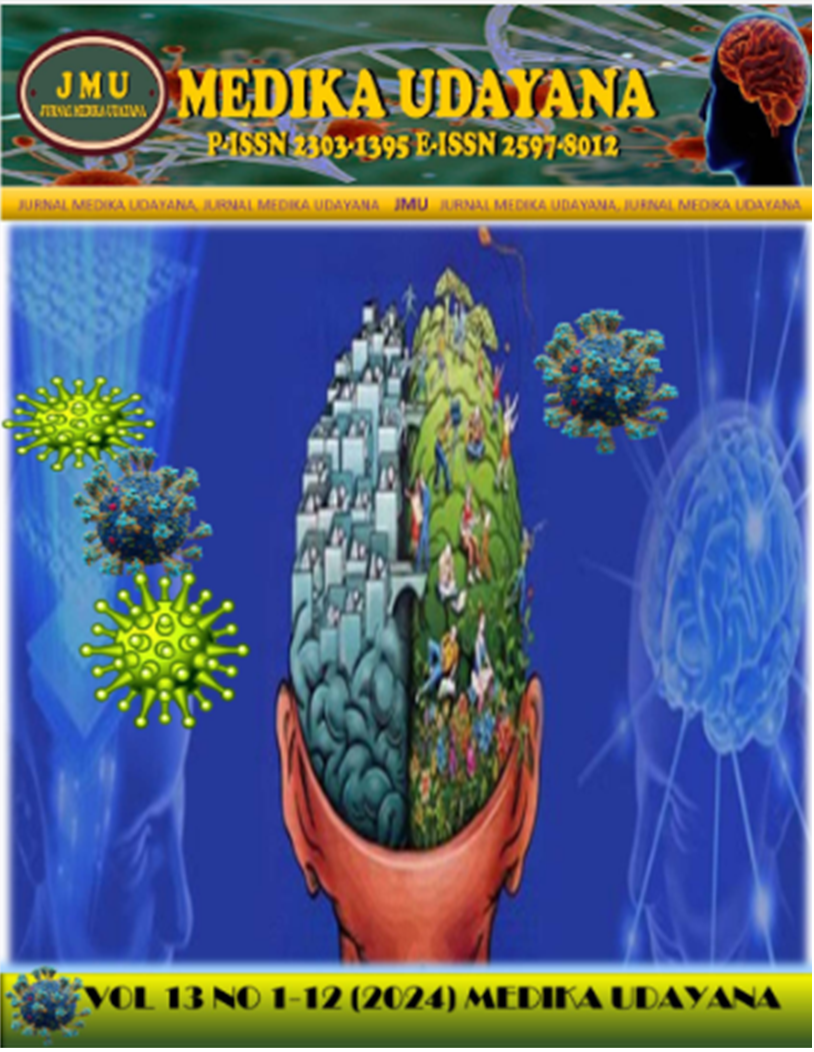LABORATORY EXAMINATION OF TYPHOID FEVER PATIENT AT PROF. NGOERAH GENERAL HOSPITAL IN 2020-2022
Abstract
Typhoid fever is systemic infection which is caused by Salmonella typhi. The gold standard of typhoid fever diagnosis is blood culture examination. Blood culture examination has a weakness, it could not be practically performed especially due to lack of laboratory facility. There are several others alternative examination including serology and hematology examination that could be used in supporting typhoid fever diagnosis. Therefore, investigation of hematology and serology examination results of typhoid fever patient is required. The type of research carried out was descriptive research with a cross-sectional design using secondary data from medical records of typhoid fever patients at Prof. Ngoerah General Hospital. A total of 52 patients with a diagnosis of typhoid fever as research subjects were taken using a total sampling technique. Following data were obtained: age, gender, serology and hematology examination result, type of antibiotics given, and complications found. Data processing was carried out using the SPSS ver. 26 with univariate analysis. This study found that typhoid fever patient at Prof. Ngoerah General Hospital tend to have normal hematological examination result including hemoglobin level, total count of leukocyte (neutrophile and lymphocyte) and thrombocyte. Widal test result of the patients showed the lowest titer value is 1/80 and the highest is 1/320 at O and H titers. Most of the patients have positive IgM anti-Salmonella typhi score of 4 and 6. 3 patients (5.8%) have negative IgM score of 2 and 11 patients (21.2%) did not have an IgM test. Most of the patients acquired antibiotic treatment with ceftriaxone become most used antibiotic. Complication is rarely occurred among the patients. Hepatomegaly is the most frequent complication occurred among the patients with complication.











